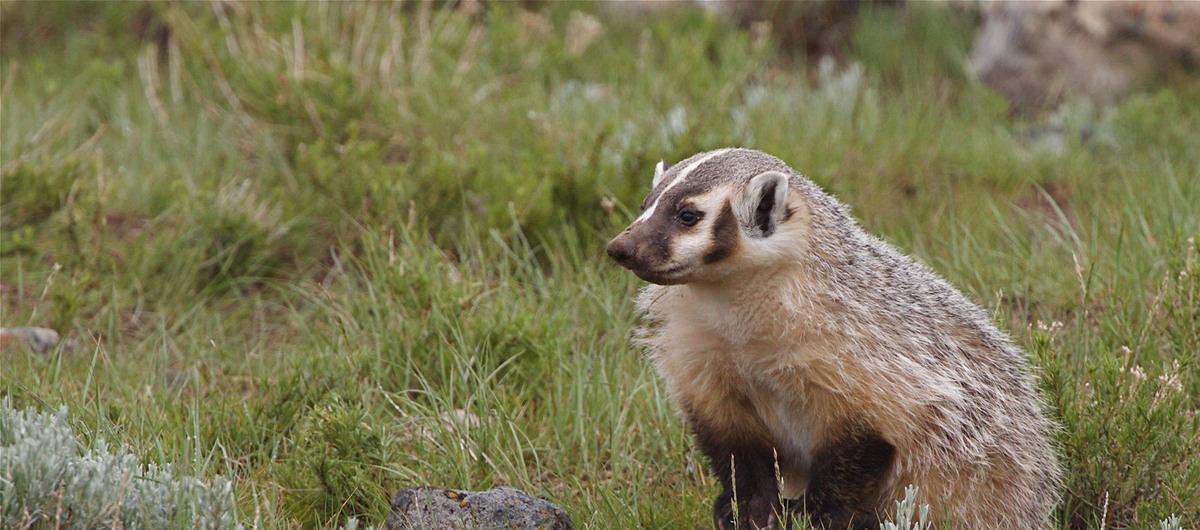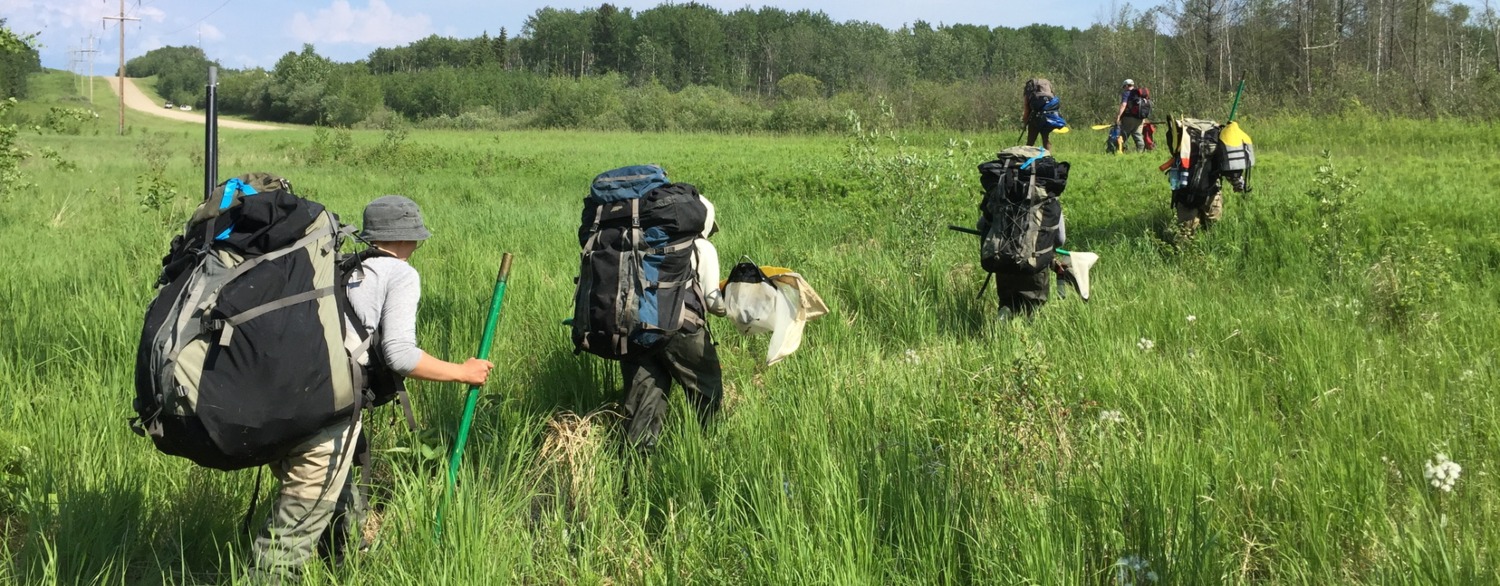
Field Crew Overview
Summer Field Technologists (Field Crew)
Summer field technologists work with us from May to August. The position is intense, satisfying, and never boring. The field season offers many opportunities to experience nature and learn about our biodiversity. It’s an adventure you won’t forget.
Our field season runs from May to August. Crews typically work a 5-to-11 day shift followed by 2 to 5 days off. Field work is often unpredictable, with weather and wildfires driving changes to our schedules. We require technologists to be very flexible and adaptable to the ever-changing schedule and tasks, though we do our best to maintain the dates of days off. Training occurs at one of our central base locations, while field work occurs across the province in crews of two. Technologists can expect occasional long drives to different stations and sites. Crews are often isolated during their field shifts where they are provided basic accommodation in post-secondary residences, travel trailers, or tents. During the field season and during days off, accommodation will be provided at one of the central bases for the duration of the contract. Equipment and training required to access sites and complete field work is provided (4x4 trucks, ATVs, backpacks, safety certificates, etc.).
Conditions vary according to where in the province sites are situated. All crews have the potential to work in relatively remote areas of the province, from grasslands to boreal forests. This sort of field work exposes technologists to challenges that vary among sites: some sites may involve overgrown thickets of alder or very wet conditions, while others are open and pleasant. This tends to even out over the course of the season and among all sites. But in general, field work is challenging.
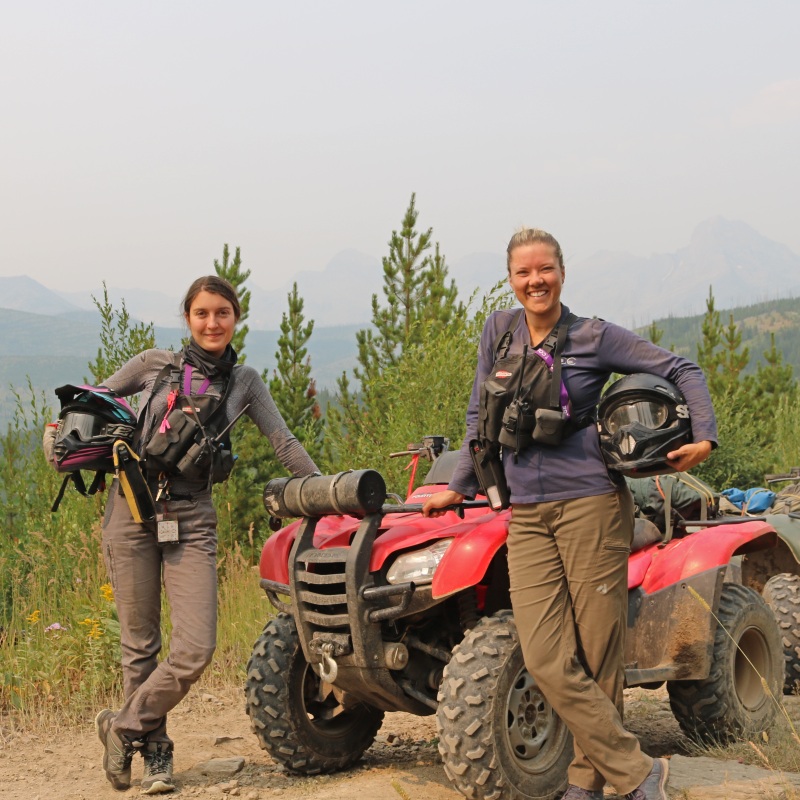
Working in pairs, field partners work together to accurately measure biodiversity at their assigned sites. A full-time staff member will occasionally accompany the field crew for in-field QAQC and support and will always be reachable by satellite phone if no cell service is available.
Summer field technologists typically spend the duration of the field season with the same field partner. Depending on the protocols being completed (See Ecosystem Health and Oil Sands Monitoring Programs), members of each crew may be responsible for collecting different data. All applicants selected for an interview are asked to complete a quick 25-minute species ID quiz following the interview. The results of this quiz do not impact whether an applicant is hired, but rather are used to determine placement within the team.
Though field crews generally work independently, a network of full-time staff includes coordinators, full-time technicians, and a dedicated land access team.
From safety courses to ABMI-specific data collection protocols, we invest a considerable amount of time and energy training technologists to ensure they have a safe and fun field season! Training takes place at both our central bases prior to sending technologists out to collect data.
Prior to the field season, we expect technologists to complete various training courses remotely before arriving at base. The cost of these courses is reimbursed following the start of the field season or paid in advance depending on the course. The first couple weeks of May are devoted to safety and basic training, including but not limited to ATV, Wilderness First Aid, truck and trailer SWPs (safe work procedures), and how to use a compass and GPS. All safety gear (bear spray, first aid kits, etc.) is provided.
Subsequent training covers ABMI-specific data collection protocols. Accurate data collection is a central aspect of the summer field technologist’s role, and we ensure that technologists are comfortable with all protocols before heading into the field for their first day of data collection. All field collection equipment is also provided, such as backpacks, compass, and camping essentials. For more information on the data collection protocols performed by field staff, please see the Ecosystem Health and Oil Sands Monitoring Programs.
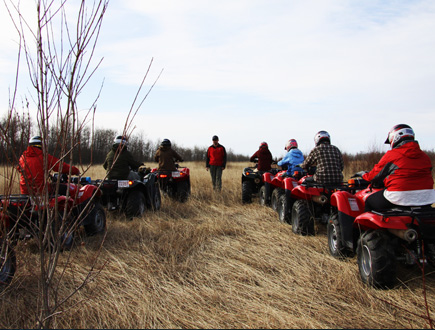
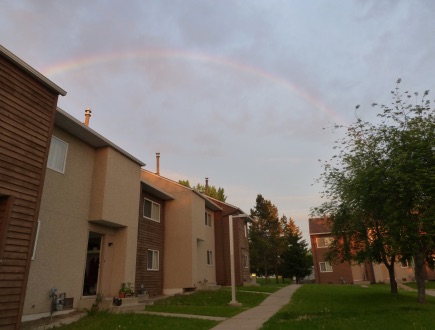
Shared accommodation provided at each central base is available for the duration of the field season (including days off). In the past, accommodations have been provided at Grande Prairie College and Lac La Biche / St. Paul Portage College residences. Rooms are fully furnished, and we provide a basic kitchen set for each house. Bedding is not provided so technologists are advised to bring their own. All training is conducted at this central base and technicians meet there upon commencement and completion of their field shifts. Accommodation and transportation are provided when sites cannot be reached from the central base and can include holiday trailers, hotels, tenting, and oil camps.
ABMI covers an equitable portion of food expenses while on shift; however, technologists are expected to prepare their own meals.
